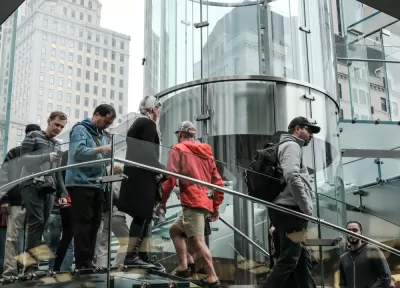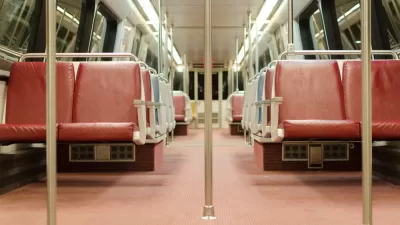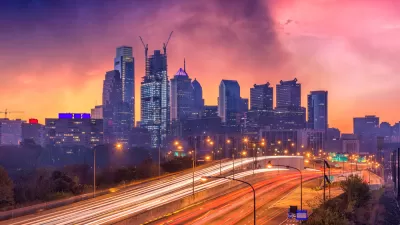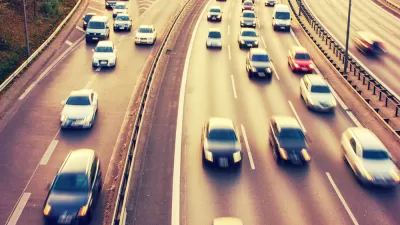How people get to work, and the geographic distinctions between trends in those choices, reveals some of the country's more ominous traits, including the trend Richard Florida calls "the new urban crisis."

Richard Florida digs deeper into data recently released by the American Community Survey to make the case that how people move around cities is a key feature of the country's "deepening economic and political fissures."
The post includes maps that reveal where Americans get to work by car, public transit, biking, walking, and carpooling. Florida also digs into factors of mode choice like size and density of location, educational attainment, economic class, weather, and more.
As for what it all means, Florida says the country's political cleavages follow the same lines as the mode choices commuter make around the country. And then theirs is the deepening economic and social inequality Florida has dubbed the "new urban crisis":
Our commuting patterns are associated with key dimensions of what I dub the new urban crisis. Housing is less affordable, inequality greater, and economic segregation higher in places where commuters are less dependent on the car. Median housing costs are positively and significantly associated with transit (0.59), biking (0.48), carpooling (0.49), and walking (0.38) to work, and so are income inequality and economic segregation. These associations again reflect the fact that denser, more affluent, educated metros are more expensive, more unequal, and more segregated.
FULL STORY: The Great Divide in How Americans Commute to Work

Study: Maui’s Plan to Convert Vacation Rentals to Long-Term Housing Could Cause Nearly $1 Billion Economic Loss
The plan would reduce visitor accommodation by 25,% resulting in 1,900 jobs lost.

North Texas Transit Leaders Tout Benefits of TOD for Growing Region
At a summit focused on transit-oriented development, policymakers discussed how North Texas’ expanded light rail system can serve as a tool for economic growth.

Using Old Oil and Gas Wells for Green Energy Storage
Penn State researchers have found that repurposing abandoned oil and gas wells for geothermal-assisted compressed-air energy storage can boost efficiency, reduce environmental risks, and support clean energy and job transitions.

Private Donations Propel Early Restoration of Palisades Playground
Los Angeles has secured over $1.3 million in private funding to restore the Pacific Palisades playground months ahead of schedule, creating a modern, accessible space that supports community healing after recent wildfires.

From Blight to Benefit: Early Results From California’s Equitable Cleanup Program
The Equitable Community Revitalization Grant (ECRG) program is reshaping brownfield redevelopment by prioritizing projects in low-income and environmental justice communities, emphasizing equity, transparency, and community benefits.

Planting Relief: Tackling Las Vegas Heat One Tree at a Time
Nevada Plants, a Las Vegas-based nonprofit, is combating the city’s extreme urban heat by giving away trees to residents in underserved neighborhoods, promoting shade, sustainability, and community health.
Urban Design for Planners 1: Software Tools
This six-course series explores essential urban design concepts using open source software and equips planners with the tools they need to participate fully in the urban design process.
Planning for Universal Design
Learn the tools for implementing Universal Design in planning regulations.
Ascent Environmental
Borough of Carlisle
Institute for Housing and Urban Development Studies (IHS)
City of Grandview
Harvard GSD Executive Education
Toledo-Lucas County Plan Commissions
Salt Lake City
NYU Wagner Graduate School of Public Service





























